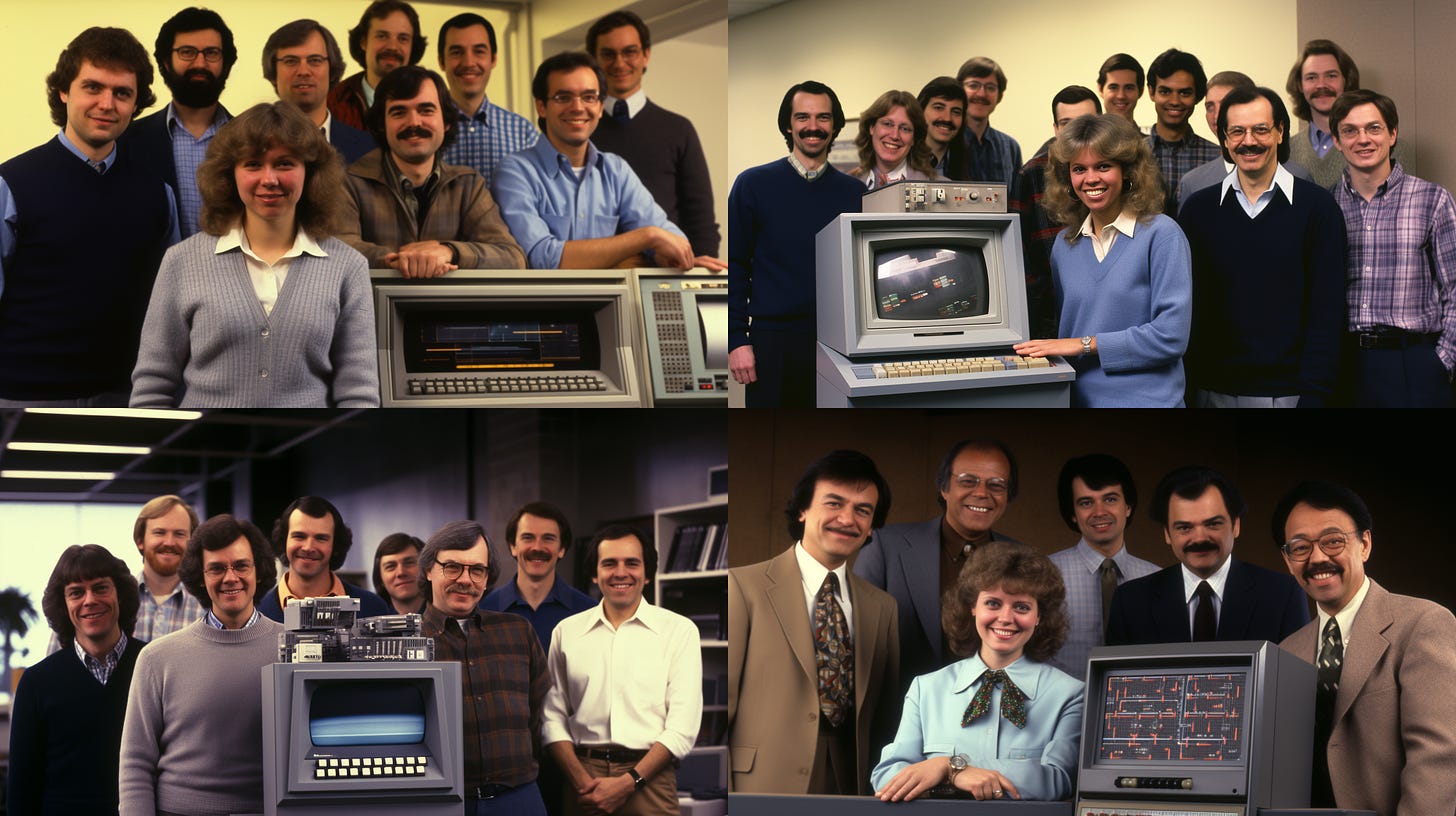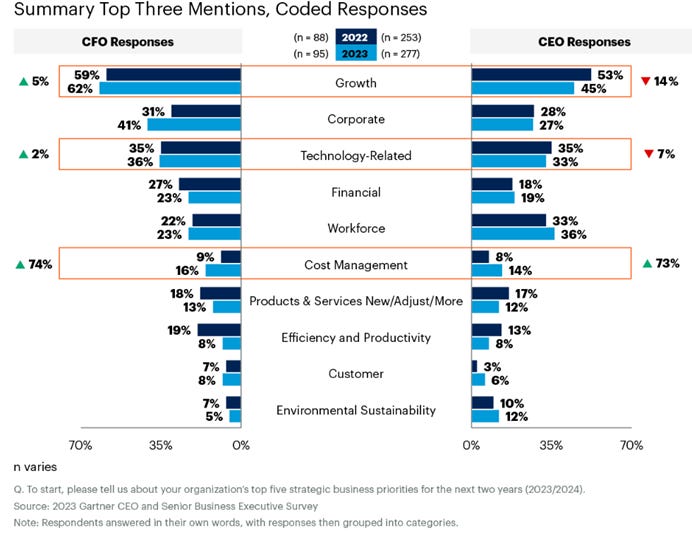
Software people are bad at estimating
Here are three ways that software people (developers, mostly) are bad at estimating:
Estimating the feasibility of writing code for new features, that is, the risk of failure - if the new feature is difficult to impossible to write, or just doesn’t work altogether. Generally, it’s a lot harder than it seems because of all the things apart from the actual feature. What will the new feature conflict with, will it be compliant? Will the code changes mess something up? How about the new edge cases, exceptions, and error handling you’ll need? And, if you’re shipping in multiple countries, you’ll need to worry about regional differences, requirements, and laws.
How long writing and shipping new features will take. I’d start by tripling any estimate a developer gives - if their estimate was right, you’ll be happy. Of course, if they can demonstrate that they’ve kept their promises over the years, believe developers a little more. But even then, you’re going to be asking them to do new things, take new risks, so they’ll need to re-calibrate their velocity.
The value/impact of new ideas and tech. Developers generally think that new technologies are good and valuable…pretty much simply because they’re new. They’re very influenced by fashion (that’s how us thought leaders keep employed!), and very eager to try new things before they’re tested and proven. Before they’re “boring.” Developers will respond to this passion by wanting to do new things, often just because they’re cool. Sure, they’ll tell you there’s a - if they even use this term! - business reason, but, you know, it’s not like they got a study from Bain on that. Likely, it was just a blog post from someone at Netflix or Spotify. For example, serverless, microservices, kubernetes, etc.
This third is related to “resume driven development,” where developers pick a new technology to use to learn how it works and fancy up their resume. However, it’s not as direct as that: developers are always seeking better tools, methods, and thinking.
These new things may be better, but until they’re proven out, it’s very risky to use them in you’re a large organization. If you already have tools and methods that, basically work, you don’t want to take on the risk of using a potentially GROUND BREAKING new technology that, more than likely, will be less than that, and even slow you down.
In the past few years, many people suffered from this with kubernetes. Their developers said they could build out Kubernetes-based platforms, and many failed. There’s not a lot of conference talks from those people, but when if you’re trying to sell to infrastructure people, you hear those stories a lot.
Webinars are good
(Meta-note: I did this video today to test out Detail some more. I was looking for how quickly I could make a multi-cam video and do the round-trip, idea to publish. Detail still doesn't have non-destructive editing [at least, as far as I can tell you can’t go back to any clip and re-adjust your cuts, you can only got back in the Ctrl-Z undo queue), and I can't zoom the timeline in as much as I'd like. I like adding text to videos [you can see how the text is behind my head in the above thumbnail], but I couldn't figure out how to have the text appear for just a moment, instead for the whole "scene." I usually use Descript [or Lumafusion if I'm feeling "pro-am" or purely on my phone], which I'll stick to. I sure do like the whole vibe and mindset of Detail, though.)
Wastebook
NPC syndrome - I always feel like I’m a character in someone else’s story. I feel bad for them, defer to them, work on what they need. I feel good about that when it goes well, shamed when it doesn’t, and resentful when I don’t get what I want. (I should think of myself more as the main character?)
“Dads don’t say ‘rad.’”
There’s really nothing new to say shout all the Twitter stuff. It just continues to be stupid and driven by a misunderstanding of…real life. Each wave brings some articles trying to analyze it, but the answer is all the same: that dude doesn’t know what he’s doing, and doesn’t know so much that he can’t tell that he doesn’t know. This is something. Also: people who are not “normal” will do weird things given the chance, power/money, and enough years to fart around. This can result in good, abnormal results (getting electric cars, rockets, satellite Internet into the market), but also results in a bunch of bad, abnormal results. Even a broken clock is right twice a day, etc.
Chart Party: CFOs and CEOs Prioritize Growth, While Other Priorities Differ Slightly

Relative to your interests
“My Bluesky experience so far has been mostly terrible…” - “I really don’t like the website interface – it feels like something I might have put together myself. Notifications fail to clear, and the same posts are always just there for some reason. I don’t follow enough people, is no doubt part of the problem.”
Does ‘Buy American’ Policy Make Sense? The Answer Is Key for Your AI Portfolio Too - “The bottom line isn’t that the digital revolution has had no impact on productivity, but that the gains from offices and factories introducing enterprise software and smartphones have mostly accrued to the makers of enterprise software and smartphones. American corporations rule the world because they make tech, not because they use it better.”
AlmaLinux discovers working with Red Hat isn’t easy - Some follow-up, “how it’s going” meme-style stuff from the RHEL open source drama.
Men are lost. Here’s a map out of the wilderness. - ‘Then there’s the point-by-point advice. If young men are looking for direction, these influencers give them a clear script to follow — hours of video, thousands of book pages, a torrent of social media posts — in a moment when uncertainty abounds. The rules aren’t particularly unique: Get fit, pick up a skill, talk to women instead of watching porn all day. But if instruction is lacking elsewhere, even basic tips (“Clean your room!” Peterson famously advises) feel like a revelation. Plus, the community that comes with joining a fandom can feel like a buffer against an increasingly atomized world.’ // Also, towards the end, the most action packed description of a Zoom call you’ll ever read. // Possible good traits: “Physical strength came up frequently, as did a desire for personal mastery. They cited adventurousness, leadership, problem-solving, dignity and sexual drive. None of these are negative traits, but many men I spoke with felt that these archetypes were unfairly stigmatized: Men were too assertive, too boisterous, too horny.”
The DoD: A Compelling Case for Extreme Programming - Good overview of why/how the practices in Extreme Programming (XP) help the needs of the military, and fit the constraints and challenges they have. For example, spreading knowledge with paired programming manages high turn over in staff.
Free Lunch - Some strong Amsterdam type vibes here. // “Free Lunch is an all-caps display font that would look comfortable in a butcher shop window. Or a lunch counter menu in 1955. Or printed on the waxed paper that wraps a half-pound of Swiss cheese from your neighborhood deli. A little playful, great for headlines and logos.”
Workin’ for the Man - This is how most all request driven processes (you have to file a ticket) end up being gamed by users: “So I think the winning technique is simply to flood their input queue with issues and eventually one will find a chink in the armour and reach an intelligent human being who Just Fixes It.”
Nobody cares about your blog. - The post is pro-blogging, obviously. We should try to bring back blogging (or blogs masquerading as newsletters, whatever). With the collapse of Twitter, there’s lots of text based people who need an outlet.
Oracle’s revised Java licensing terms 2–5x more expensive - ’a hypothetical organization with 49,500 employees, all of whom are applicable for the “Named User Plus” (NUP) license as per the legacy subscription model. That organization is also running Oracle JDK on 5,000 processors, and as such would pay $742,500 for NUP licenses and $900,000 for processor licenses under the legacy deal. The new Universal Subscription model would cost it about $3,118,500, a 90 percent increase in price.’
Why they’re smearing Lina Khan - Outcomes based regulation: “There is no measure so small that the corporate world won’t have a conniption over it. Take click to cancel, the FTC’s perfectly reasonable proposal that if you sign up for a recurring payment subscription with a single click, you should be able to cancel it with a single click. The tooth-gnashing and garment-rending and scenery-chewing over this is wild. America’s biggest companies have wheeled out their biggest guns, claiming that if they make it too easy to unsubscribe, they will lose money. In other words, they are currently making money not because people want their products, but because it’s too hard to stop paying for them!”
Upcoming
Talks I’ll be giving, places I’ll be, things I’ll be doing, etc.
Sep 6th O’Reilly Infrastructure & Ops Superstream: Kubernetes, online, speaking. Sep 6th to 7th DevOpsDays Des Moines, speaking. Sep 13th, stackconf, Berlin. Sep 14th to 15th SREday, London, speaking (get 50% of registration with the code 50-SRE-DAY) Sep 18th to 19th SHIFT in Zadar, speaking. Oct 3rd Enterprise DevOps Techron, Utrecht, speaking. Nov 6th to 9th VMware Explore in Barcelona, speaking.
Logoff
After reading an IDC report on Dell acquiring Moogsoft, I wrote a long piece with advice on hardware companies acquiring software companies. Also, a list of other types of acquisitions. I did this kind of work at a previous job (Dell of all places!), so I feel I have some first hand experience. However, since the place I’m working at is in the process of being acquired, it seemed like a bad idea to publish it. Maybe one day! Here’s an older (2016) piece on the topic - it’s not too great. The thing on estimating is from that longer piece.

